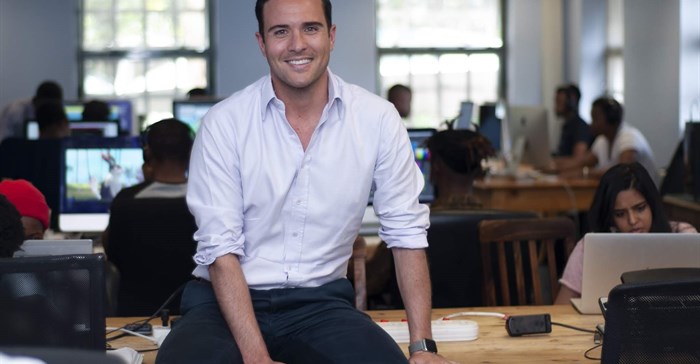South African disruptors and innovative businesses are using technology, among other innovations, to expand into territories in Africa previously fraught with countless barriers to entry. They are acting local, but thinking global.

Dr Corrin Varady, CEO of IDEA Digital Education.
Border controls, import policies, foreign currency and banking rules are just a few of the many hurdles and obstacles that business owners have traditionally needed to resolve before even setting foot in a new country to set up office. Technology has, in many ways, found innovative solutions that now make it possible to take their products and services global.
Finding a market in the gap
Due to its rapid rate of adoption, Quicket, the self-managed online ticketing system, is one such business extending into countries beyond our borders. With its barriers, besides an internet connection, including banking; accepting local payment methods and currencies; local ticket distribution methods; on the ground teams for event logistics; platform localisation and support; and lastly legal, done to ensure compliance with SARB; it is now successfully setting up and supporting users and their events in Africa, and beyond.
Given the platform’s popularity, it was only a question of time before its influence began spreading north. “Africa is really is on a technological cusp,” says Quicket co-founder and director, James Hedley. “It is developing at an incredible rate, and ambitious businesses like ours are now investing in this sector. In Uganda, for example, the economy is growing rapidly, and there’s a high proportion of younger people about to enter the job market and become potential Quicket clients.”
Make it your business to understand theirs
What underpins export-ready business success comes from conducting appropriate due diligence in each new territory, based on their growing commercial success outside of South Africa. It is critically important for a business to understand as much as possible about the country they intend investing in and its people.
Dr Corrin Varady, CEO of IDEA Digital Education, has garnered first-hand experience in marketing and selling educational content and software to students and teachers around the world. These lessons have especially helped grow the business into Africa.
“For every country, localisation is required, both in terms of education and curriculum alignment, and also an understanding of the cultural and contextual differences (and similarities) of each country,” he says. “Being mindful of these differences in each region keeps the content relevant and specific.”
Though Varady cautions that, “While every nation faces its own versions of the certain challenges in education, they are all similar in their global application. The more global approaches we learn from, the faster and easier we can solve our local education problems. This ensures that we will learn the best ways to ensure our students are getting a global-best and not just a local-best.”
Hedley agrees: “There are many challenges when considering expanding into new markets. In our case, what’s clear is that the payment infrastructure tends to be very new and undeveloped, and people are still unfamiliar with purchasing a digital asset like a ticket. In Uganda, about 90% of the tickets we sell are still physical tickets that get dropped off on motorbikes to shops, simply because that’s what works.”
David Seinker, founder and CEO of The Business Exchange (TBE), has recently opened offices in Mauritius and the business is also looking to open in the West- and East Africa. Its highly adaptable ecosystems offered to businesses of all sizes has made it a perfect export candidate.
“The African market needs something different in the co-working space. There are business centres available, but there are no networking opportunities for entrepreneurs,” Seinker explains. “That’s the niche we’re successfully able to occupy.”
When politics and partners matter
As for business appetite to expand, Seinker is quick to point out that sentiment about Africa is still mostly positive, but it tends to ebb and flow.
“Countries like Ghana offer more stability, and the new government seems to have its people at the forefront of its decision-making, yet others like Nigeria may offer less investor confidence at the moment,” he says. “We are fortunate to be in business with our strategic funding partners Raizcorp, the largest business incubator in the continent. They have a presence throughout Africa, and we feel a lot safer going into new territories with them by our side. We have successfully leveraged their network in South Africa to grow TBE to where it is today, and we will aim to do so in the rest of Africa.”
Businesses have to learn, and most have to build the technology and systems that are appropriate for each country we invest in. In the case of Quicket, this approach was key to their Africa expansion.
“The other vital part of a successful launch is educating people and creating awareness about the concept. In Africa, a lot of people still don’t trust the digital space as we do in South Africa – preferring something tactile, something they can hold in their hand.”
Given their approach, Quicket and other ambitious businesses, the likes of The Business Exchanges and IDEA, have each become pioneers in many ways.
“In many ways, an African expansion entails both learning and educating at the same time. We’re working to create awareness of our product in the market, but also to learn about the various facets of that market to which we need to adapt. And in so doing, we’ve had to innovate and come up with creative solutions which has been both the most challenging and rewarding part,” Hedley concludes.

























